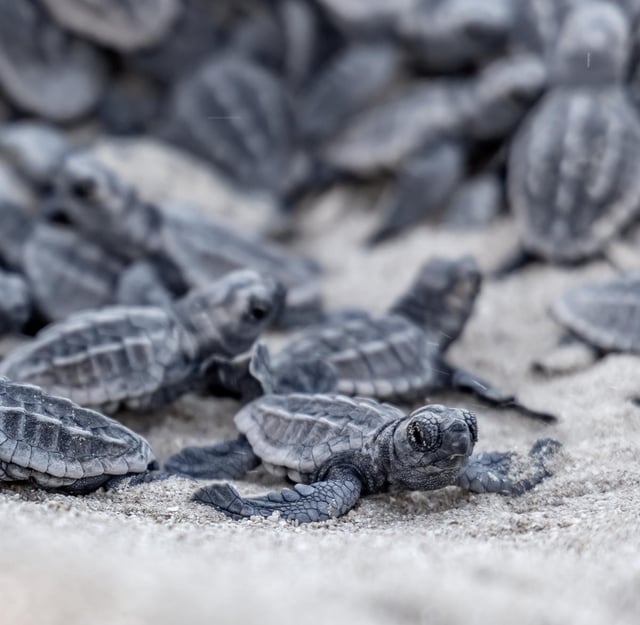Overview
- Rising temperatures in the Mediterranean threaten sea turtle populations by skewing gender ratios and reducing hatchling survival rates.
- Research shows loggerhead turtles (Caretta caretta) and green turtles (Chelonia mydas) are laying eggs earlier each year to avoid overheating nests.
- Loggerhead turtles have advanced their nesting by an average of 0.78 days annually since 1993, helping stabilize gender ratios and hatch rates.
- Scientists caution that continued adaptation depends on future temperature increases and the availability of food at key times.
- The observed changes are behavioral responses rather than genetic evolution, as turtles' long generational cycles prevent rapid evolutionary shifts.


